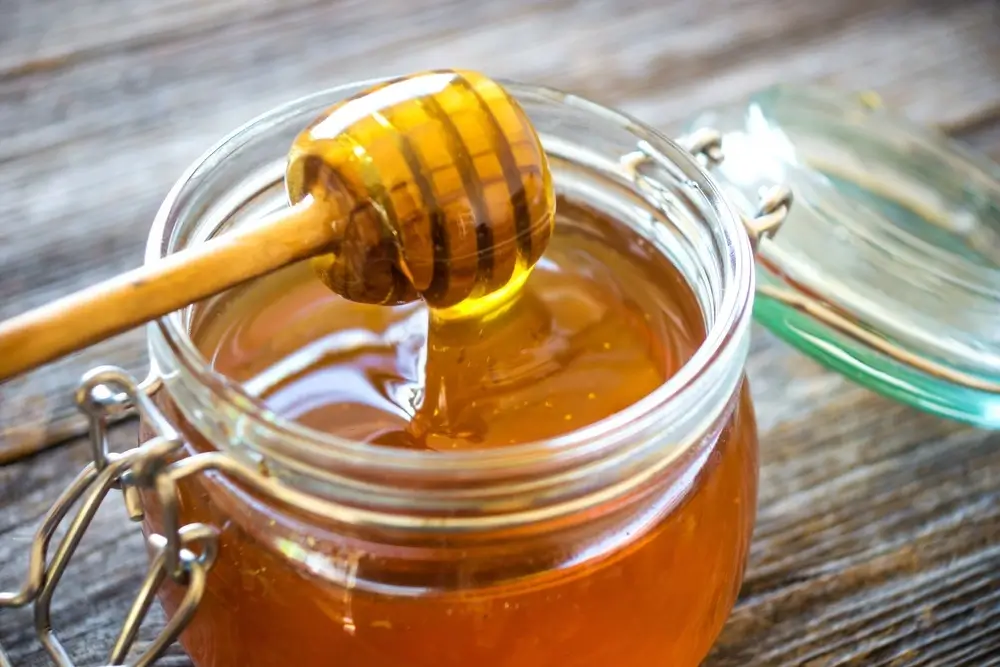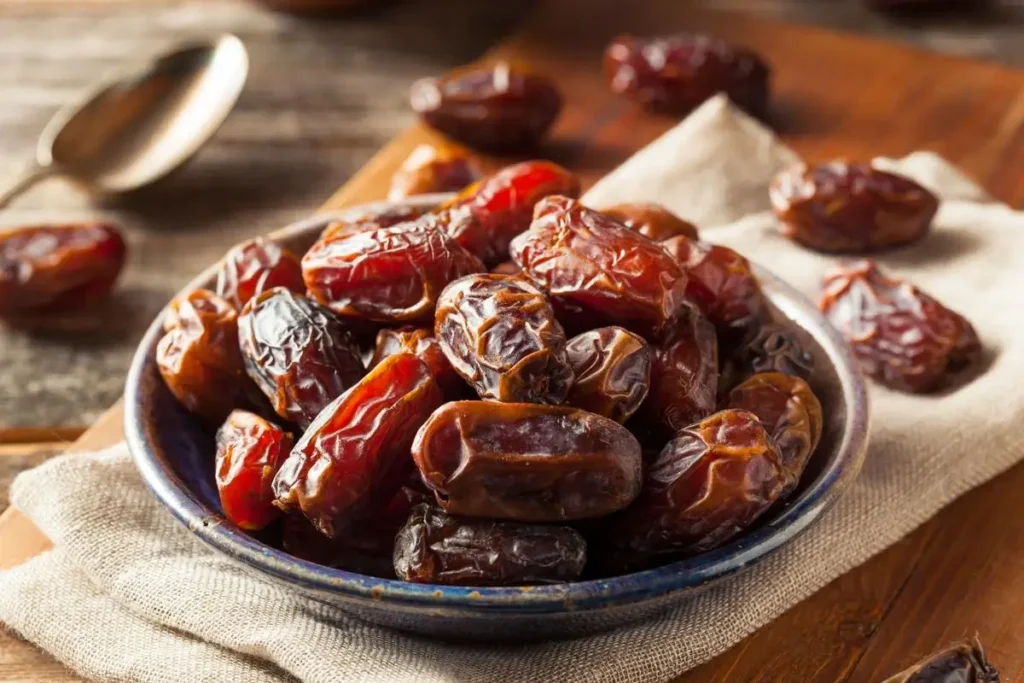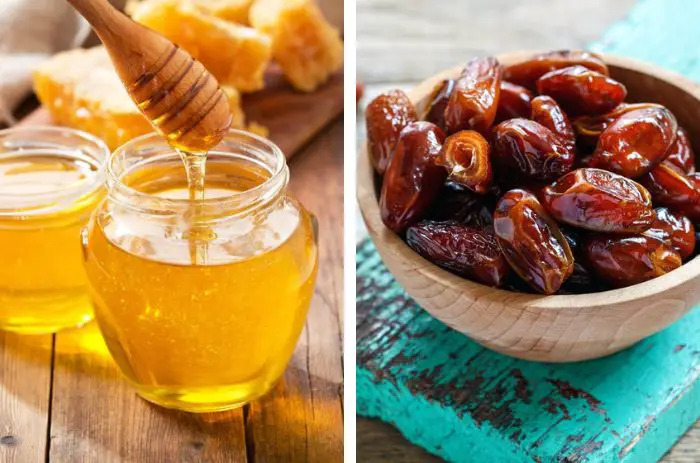Are you looking for a natural and healthy alternative to refined sugar? Look no further than dates and honey! These two sweeteners have been used for centuries and are both known for their unique taste and nutritional benefits. But which one is better for your health? In this article, we will explore the nutritional differences between dates and honey and help you make an informed decision on which one to choose. So, whether you’re a health-conscious individual or just looking to add some natural sweetness to your meals, keep reading to learn more about the differences between dates and honey.
What Is Honey?

Honey is a sweet and viscous liquid that is produced by bees. Bees collect nectar from flowers and transform it into honey through a process of regurgitation and evaporation. The result is a sweet and sticky substance that is high in natural sugars.
Honey has been used for thousands of years as a natural sweetener and has been valued for its medicinal properties. It is also used in cosmetics, as a cough suppressant, and as a wound dressing.
There are many different types of honey available, each with its own unique taste, texture, and color. The taste of honey can vary depending on the flower source, with some types of honey having a stronger, more distinct flavor than others.
Honey can be processed or raw. Raw honey is extracted from the honeycomb and has not been filtered or heated. Processed honey, on the other hand, has been filtered, heated, and sometimes even mixed with other ingredients such as corn syrup or water.
What Are Dates?
Dates are a type of fruit that grows on date palms in warm, dry climates. They are high in natural sugars and are commonly used as a natural sweetener in baking and cooking.
Dates have been cultivated for thousands of years and are a staple food in many parts of the world. They are rich in nutrients and are often consumed for their health benefits.

There are many different types of dates available, with different flavors and textures. Some of the most popular types of dates include Medjool dates, Deglet Noor dates, and Barhi dates.
Dates can be eaten fresh or dried. Dried dates are often used in baking, while fresh dates are typically eaten as a snack.
Nutritional Differences
Calories
Both honey and dates are high in calories and should be consumed in moderation. A tablespoon of honey contains around 64 calories, while a single date contains around 23 calories.
Protein
Dates are higher in protein than honey, with a 100g serving of dates containing around 2.5g of protein. Honey, on the other hand, contains very little protein.
Glycemic Index
The glycemic index (GI) is a measure of how quickly a food raises blood sugar levels. Foods with a high GI are rapidly digested and can cause a sharp increase in blood sugar levels, while foods with a low GI are digested more slowly and cause a slower, more gradual increase in blood sugar levels.
Dates have a low GI of around 42, while honey has a medium GI of around 58. This means that dates are a better option for people who are concerned about their blood sugar levels.
Fiber
Fiber is an important nutrient that helps to regulate digestion, reduce cholesterol levels, and control blood sugar levels. Dates are a rich source of dietary fiber, with a 100g serving containing around 8g of fiber. Honey, on the other hand, contains very little fiber.
Carbohydrates
Both honey and dates are high in carbohydrates, with a 100g serving of dates containing around 75g of carbohydrates, and a tablespoon of honey containing around 17g of carbohydrates.
Vitamins
Dates are a good source of several vitamins, including vitamin B6, which is important for brain function and the formation of red blood cells. Honey, on the other hand, contains only small amounts of vitamins.
Minerals
Both honey and dates are rich in minerals such as potassium, magnesium, and calcium. Dates are particularly high in potassium, with a 100g serving containing around 656mg of potassium. Honey, on the other hand, contains smaller amounts of these minerals.
Antioxidants
Antioxidants are compounds that help to protect the body from damage caused by free radicals. Dates are a good source of antioxidants, including flavonoids and phenolic acids. Honey also contains antioxidants, although the amount can vary depending on the type of honey.
Which Is The Better Option For Your Health?
When it comes to choosing between dates and honey, there is no clear winner. Both are natural sweeteners that offer some nutritional benefits.
Dates are a good source of fiber, vitamins, and minerals, and have a low GI, making them a better option for people who are concerned about their blood sugar levels. Honey is also rich in minerals and contains antioxidants, although it has a medium GI and very little fiber.
Ultimately, the best option for your health will depend on your individual needs and preferences. Both dates and honey can be enjoyed in moderation as part of a healthy diet, but it is important to be mindful of the amount you consume, as both are high in calories.
Conclusion
In conclusion, while dates and honey may seem similar, there are some key differences between the two. Dates are a good source of fiber, vitamins, and minerals, and have a low GI, making them a better option for people who are concerned about their blood sugar levels. Honey is also rich in minerals and contains antioxidants, although it has a medium GI and very little fiber.
Both dates and honey can be enjoyed as part of a healthy diet, but it is important to consume them in moderation, as both are high in calories. Ultimately, the best option for your health will depend on your individual needs and preferences.


